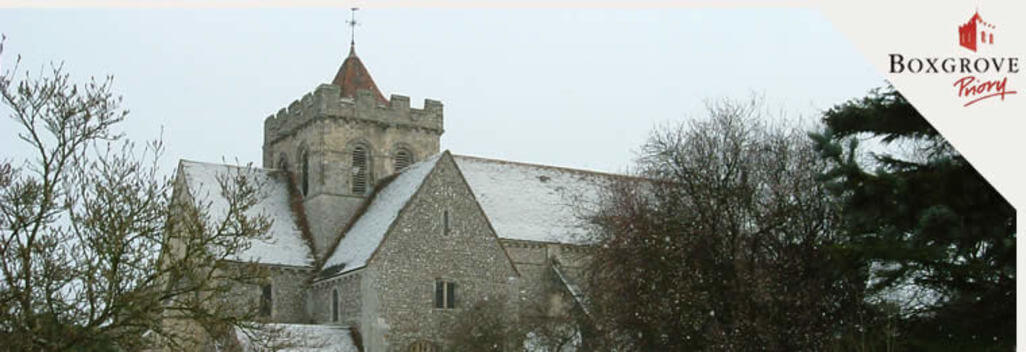 The next 100 years ...
The next 100 years ...
The atmosphere in Boxgrove Priory is a source of constant comment by visitors. “A spiritual place” ... “Prayerful and still” ... “Wonderfully peaceful” ... “Soaked in prayer”. The fascinating structure is not only beautiful and stately but also contains styles of building that reflect the move from pure Norman to early English. The flying buttresses are interesting as they are among the earliest built in this country.
The worship at Boxgrove Priory aims to be of the highest standard that we can achieve. The Sunday worship is eucharistic and engages the human senses with fine and noble ceremonial and music of a very high standard. Boxgrove Priory’s choir is justly famous for the contribution that its members make to the ethos and ambiance of the place. It is a place where art flourishes, and where great care is taken over the worthiness of fixtures and fittings.
At the moment we are exploring a developing role as a place of prayer for the unity of the Church in France and in England. Boxgrove Priory was founded by the Abbey of Lessay which is on the Cherbourg peninsula. Lessay was a daughter house of one of the greatest Benedictine Abbeys of France “le Bec Hellouin”. The Abbey at Bec provided a number of Bishops and senior figures who served in the English Church: The names of Lanfranc and St. Anselm appear among the Archbishops of Canterbury. Links with France are strong. There is a continuing friendship with Lessay and only a little while ago the Abbot of Bec and some of his community visited Boxgrove.
We are a venue for concerts as well as religious activities. We are also a place that welcomes children who are on educational visits and wish to explore the history and meaning of monasticism and come to an understanding of the English Reformation. Groups from local universities come to study the architecture of the place and artists come to Boxgrove Priory to paint. The Priory is described in the best guide books as the second most interesting church building in Sussex (East and West), after Chichester Cathedral.
Fr Ian Forrester

 Home
Home

